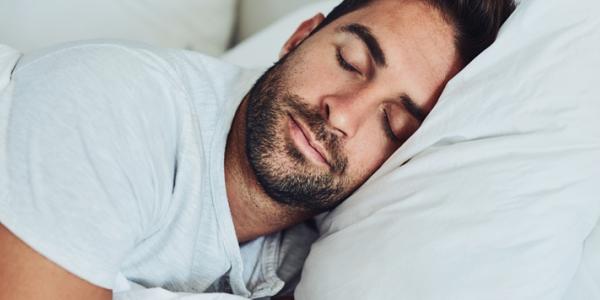
請點擊此轉換成中文
We’ve all had those nights where we can’t fall asleep—our minds still churning over the events and stresses of the day.
Insomnia is often a result of anxiety, so consider trying some of these stress-relieving remedies to help you get the rest you need.
- Progressive Muscle Relaxation
Progressive muscle relaxation (PMR) is a proven technique for inducing a deep state of relaxation that can lead to more restful sleep. Starting with your toes, tense them tightly for 10 seconds, then release and relax. Continue this pattern of tensing and releasing as you work your way up your body, from feet, calves, and thighs to abdomen, back, shoulders, arms and neck. Just five minutes of PMR can be enough to help lull you into a relaxed and deep sleep. - Biofeedback
Biofeedback — tracking different physical functions that measure stress and may be interfering with your sleep — is easier than ever with the variety of mobile apps and wearable devices that are now available. Understanding your breathing patterns, heart rate, body temperature and more can help you pinpoint stress trends and take specific steps to alleviate them before going to bed. - Meditation and Patterned Breathing
Turning off electronic devices an hour before bedtime is a great way to lead into a routine of mindfulness and meditation for relaxation. Spending a few minutes quietly focusing on your breathing can calm the body and the mind, preparing yourself for restful sleep. Try breathing in for 4 seconds, hold for 4 seconds, then exhale for 8 seconds. Find a pattern that’s comfortable for you, then spend 5 or 10 minutes practicing it before trying to sleep. - Acupuncture
This ancient Chinese practice can relieve symptoms of insomnia, such as stress and anxiety, that interfere with sleep. Acupuncturists insert thin needles into specific parts of the body to stimulate nerves and muscles. This stimulation triggers the body’s pain relief functions and improves blood flow. - Weighted Blanket
Many adults have found that using a weighted blanket—a blanket filled with plastic pellets to make it heavier—can help improve their quality of sleep. The extra weight on the body can feel very calming, helping secure you in place and fall asleep easier. Weighted blankets are also used by some to help relieve anxiety.
If getting to sleep or staying asleep is something you have an ongoing struggle with, talk with your doctor to find out what the reason could be and how to treat it. Insomnia can sometimes be a symptom of a serious health risk, such as heart disease or sleep apnea.
This article first appeared in the April 2019 edition of the HealthPerks newsletter and was updated in May 2025.

